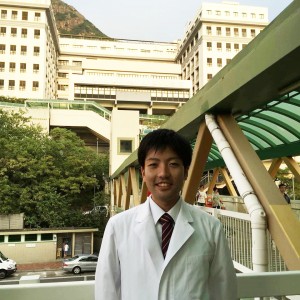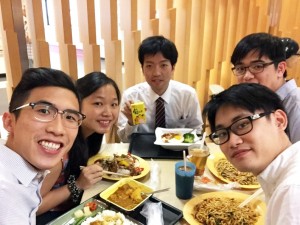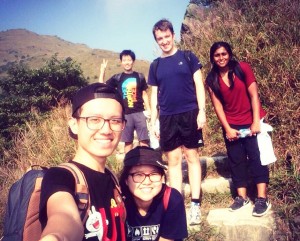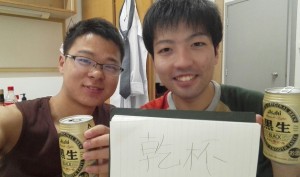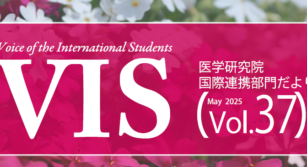Shigenari Watanabe, a final year medical student, took the chance to participate in 4-week clinical attachment in Hong Kong in September 2015. Let’s hear what he studied and learned away from home. ……………………………………………………………………………
I studied Paediatric surgery at Li Ka Shing Faculty of Medicine, Hong Kong University for 4 weeks in September 2015. This was the first time for me to stay and study so long in the foreign country and I had many valuable experiences. I participated in professor teaching round, paediatric surgery, outpatient’s clinic, and interactive lecture with local students. I felt many differences through these practices.
I mainly studied at the department of paediatric surgery in Queen Mary Hospital. Operations were performed almost every day. I was surprised that paediatric surgery department was treating various diseases from lung diseases to urinary diseases. Also the doctors in Hong Kong were actively introducing new technologies into the fields of paediatrics. They were using laparoscopy, thoracoscopy, robotic assisted surgery toward lobe sequestration, choledochal cyst, vesicourethral reflux (VUR).
I also attended some lectures named ‘interactive lecture’ with local medical students who were in the final year like me. I felt that they had much more clinical based knowledge, and were more eager to study medicine than Japanese students. During the lecture, doctors keep asking questions to students about different diagnosis, image findings, physical examination, treatment, and medication. Discussion was very active and students never said “I don’t know”, a phrase Japanese students often use. I was wondering why medical students in Hong Kong had a keen clinical sense and were accustomed to arguing with doctors. One student told me that they have 5 years to finish the medical course, and starts bed-side-teaching from the 3rd year. What surprised me most was that they have OSCE every year from the freshman year. Although first OSCE is very simple, its level goes up year by year. At the final year, high level clinical competence is demanded and it seems that real patients take part in OSCE. When I told students in Hong Kong that I had only one OSCE so far and, for graduation, would need to pass the paper examinations only, they were surprised and said, “That is very good.”
I also found interesting facts about languages. Many foreign students come to study at Hong Kong University. I made friends with students from Scotland, England, Malaysia, and Beijing. Medical students in Hong Kong speak Cantonese in daily conversation, but they have studied science in English in elementary or high school, and study medicine only in English. Therefore, they can use English very fluently. Since English is a must to study medicine in Hong Kong, some wealthy students (about 20%) go to high schools in English speaking countries. One day my roommate from Beijing told me that he could understand only 1% of Cantonese. I was so surprised to learn that there is a great difference between Chinese used in Beijing and Chinese used in Hong Kong. There was a Chinese Malaysian student, and he could speak Chinese, Cantonese, English, and Malay. He could speak English best, and couldn’t read Malay which is the first language of Malaysia. This language culture shock interested me a lot. In Japan, we use only one language, and study all subjects in Japanese. This may be because Japan historically and geographically developed the original culture. This may be a good thing, because we can understand easily and deeply everything without using a second language.
Through these experiences, I felt many differences about medicine, education, culture and so on. I don’t think I was able to have these experiences if I were only in Japan. It’s a great fun for me to experience the different world from Japan. To be honest, there were many occasions I couldn’t make myself understood well, also couldn’t understand what people said. Also I was aware of my ignorance on medical knowledge, Japanese history or politics. I have to learn more about Japan as well as English before the next time I study abroad.
Finally, I’d like to express my appreciation to Hokkaido University School of Medicine for supporting me in my clinical practice, and to all people who kindly helped me in Hong Kong.

